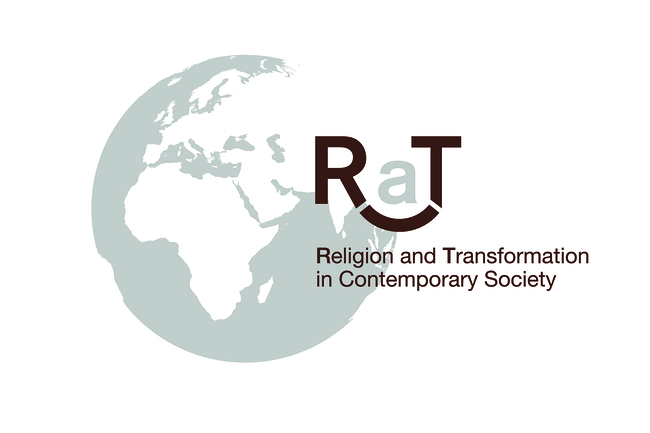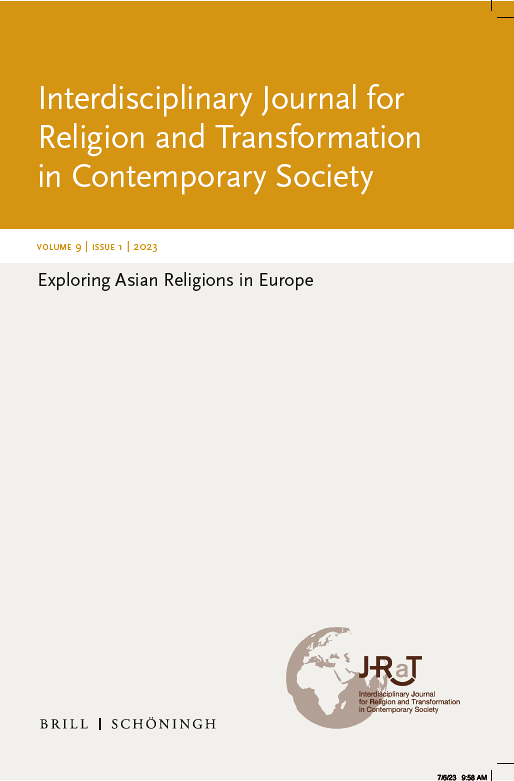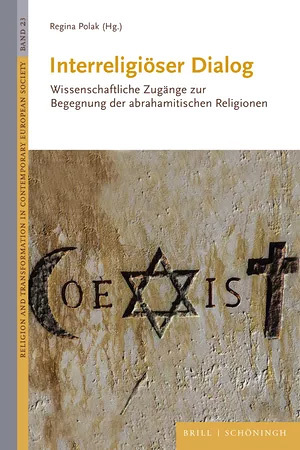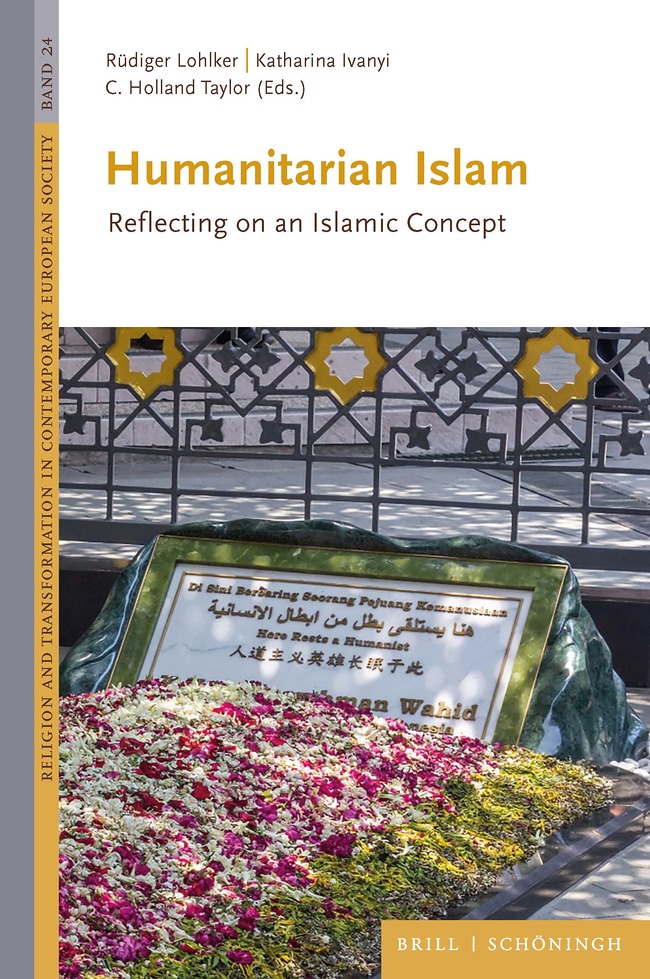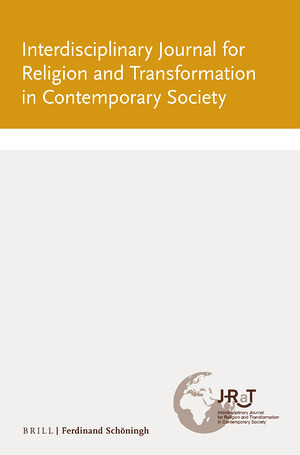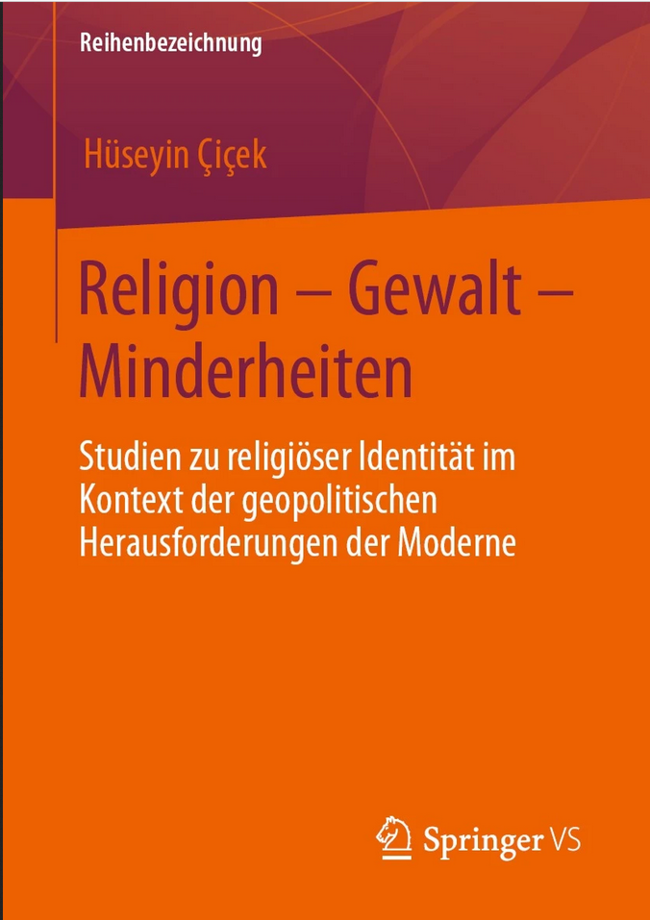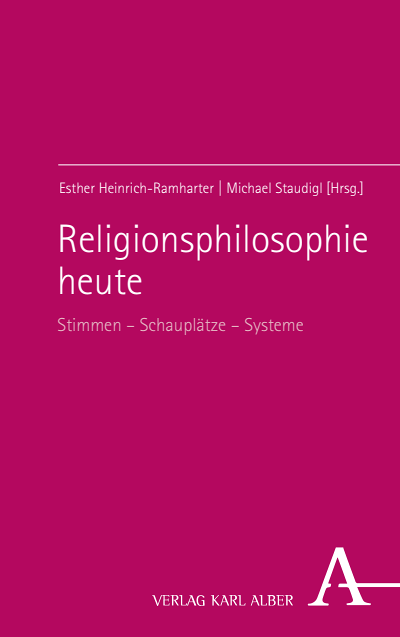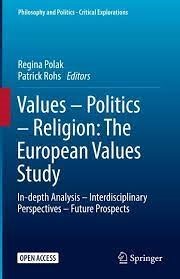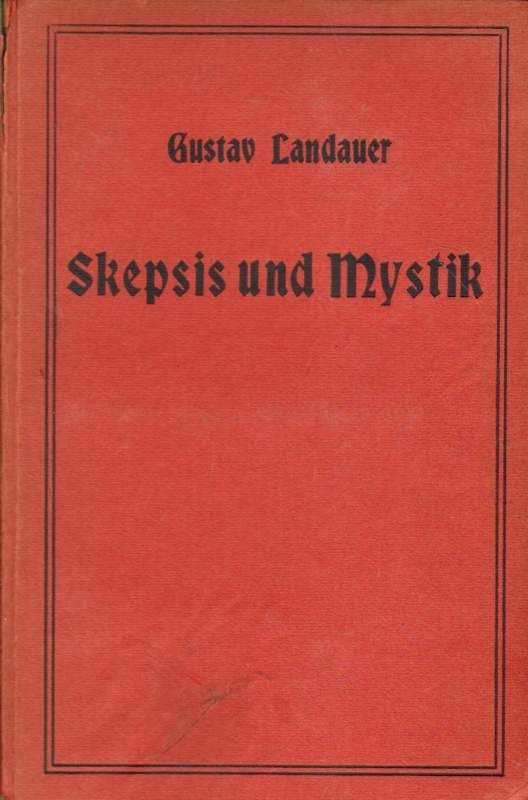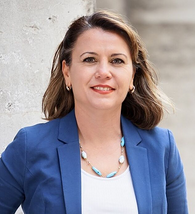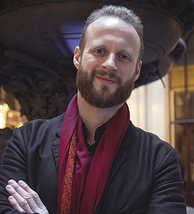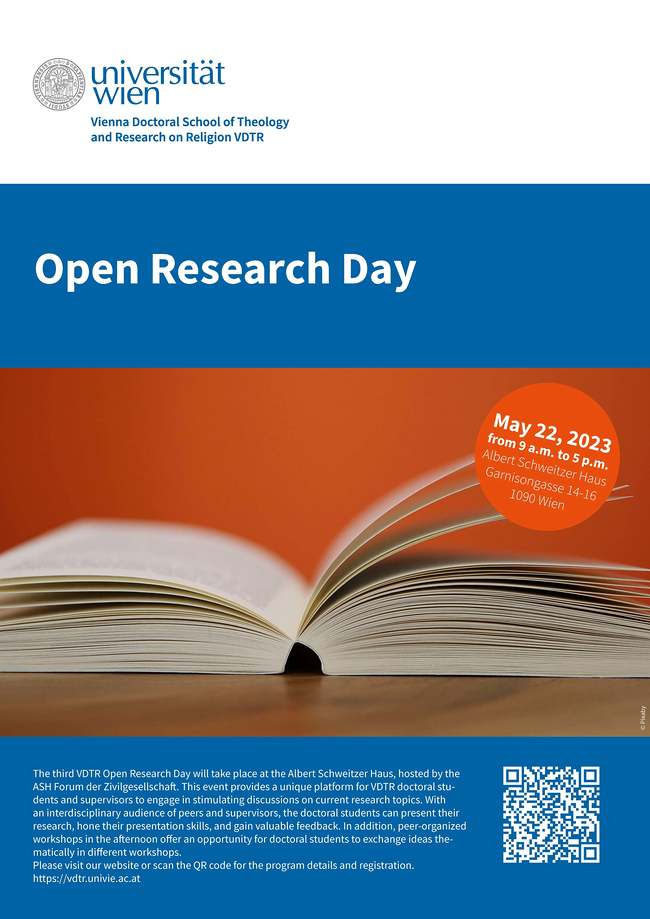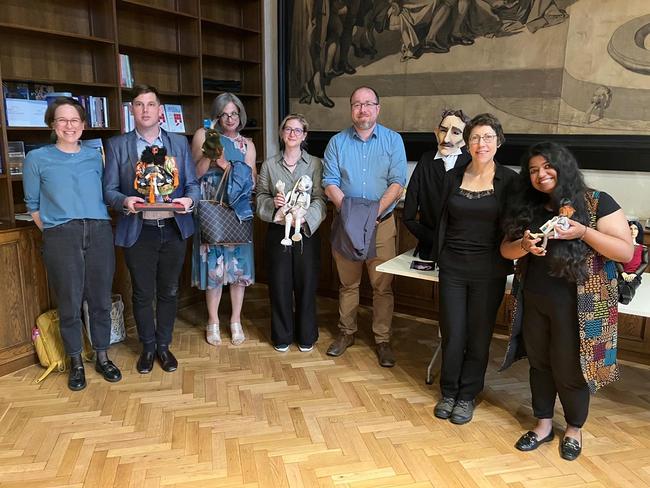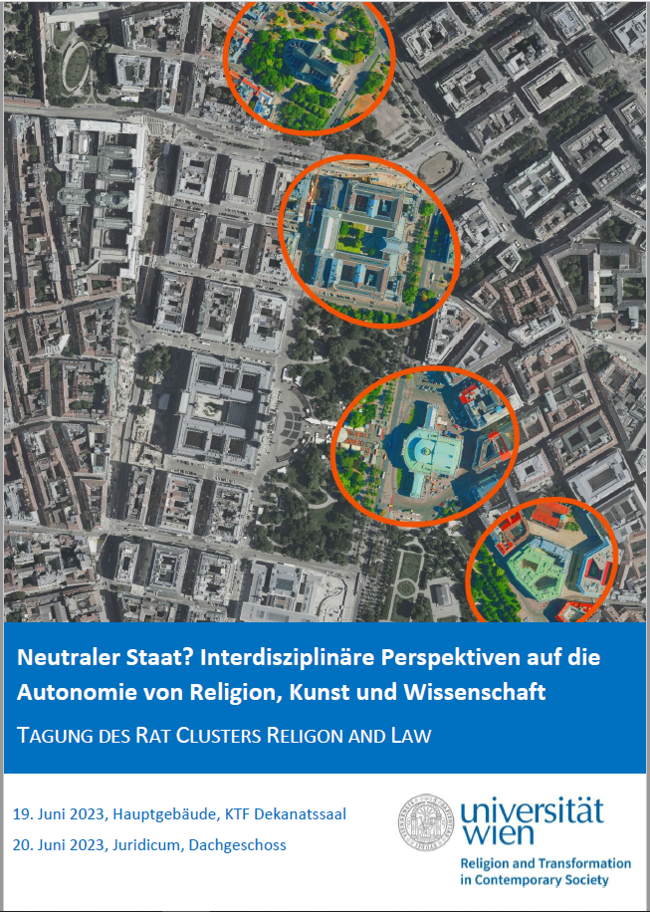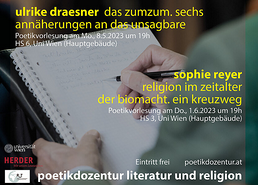|
|
Dear members and friends of RaT,
Welcome to our last newsletter for the academic year 22/23! This time, we are especially
proud to present many new RaT publications: The two recently published volumes in our
RaT book series: Vol. 23: Interreligiöser Dialog. Wissenschaftliche Zugänge zur
Begegnung der abrahamitischen Religionen and Vol. 24: Humanitarian Islam. Reflecting
on an Islamic Concept. Furthermore, the first volume of JRAT 9: Exploring Asian
Religions in Europe is out now.
Other than that, you can find new books and articles written by our members below, a look
back at the conference “Neutral State?” and at the two events of this semester’s Poetics
Lectureship and much more! Even though summer has just started, our members are
already busy planning conferences for the upcoming winter term, one of which you can
find below.
Our next newsletter will come out in October. Until then, we wish all our readers a nice
and relaxing summer!
Kurt Appel, Hannah Bleckenwegner, Noemi Call, Jakob Deibl, Magdalena Lorenz, Astrid
Mattes, Marian Weingartshofer
PS: Please consider forwarding our newsletter to those interested in the topics we work
on! Want to subscribe? Just click here.
|
|
PUBLICATIONS: JRAT and RaT Series
|
|
Latest Issue(s):
JRAT 9 (1/2023): Exploring Asian Religions in Europe, edited by Ugo Dessì & Lukas K. Pokorny
In the last fifty years there has been an increasing interest in alternative “spiritualities” in the European context, which have crystallised to a significant extent around “Eastern” religious forms. Whereas an important impulse has certainly been given in this respect by Orientalist views, the role played by missionaries in the transmission of Asian religious
forms to Europe has been equally important. Still another major factor behind the transmission of “Eastern” religions to Europe is migration, which is becoming more and more relevant with the increasing number of immigrants from Asian countries. Against this general framework, the articles collected in this special issue attempt to shed more light on selected aspects of Asian religions in the European context, with particular attention to institutional, semi-institutional, and more informal practices, still relatively understudied areas (e.g., parts of Eastern Europe), and broad historical
developments.
Link to the publication (full access).
|
|
|
Latest Issue(s):
RaT Series (Volume 23): Interreligiöser Dialog. Wissenschaftliche Zugänge zur Begegnung der abrahamitischen Religionen, edited by Regina Polak.
Interreligious dialogue can make a significant contribution to peaceful coexistence in ideologically plural societies. In this context, the trilateral dialogue between Jews, Christians and Muslims is at the center of attention. Admittedly, this dialogue is associated with highly heterogeneous understandings, interests and goals. Religious people associate different ideas with interreligious dialogue than social or political actors. In this volume, internationally renowned scholars address interreligious dialogue from interdisciplinary and transdisciplinary perspectives - i.e., theological, historical, religious, social, educational, and practical - and explore the complexity of the phenomenon, the problems associated with it, such as anti-Semitism and Islamophobia, and its possibilities and limits.
Link to the publication.
|
|
|
Latest Issue(s):
RaT Series (Volume 24): Humanitarian Islam. Reflecting on an Islamic Concept, edited by Rüdiger Lohlker and Katharina Ivanyi.
Humanitarian Islam is an innovative concept that has begun emerging from the traditions of Islam in Indonesia in recent years. The most important contemporary Islamic organizations in Indonesia support it. Nevertheless, it seems to be unknown beyond the Southeast Asian context, despite its global potential, aspirations and claims. Moreover, the concept has not received any academic attention so far. This volume presents reflections on the idea of Humanitarian Islam by Muslim and non-Muslim scholars from Europe and beyond.
Link to the publication.
|
|
|
Latest articles published online in advance (all our articles are published open access):
|
|
|
PUBLICATIONS: Monographs & Anthologies
|
|
Hüseyin Çiçek: Religion – Gewalt – Minderheiten. Studien zu religiöser Identität im Kontext der geopolitischen Herausforderungen der Moderne. Wiesbaden: Springer VS 2023.
The volume takes a look at current topics in religious studies from different perspectives in religious studies and the social sciences. They are explicitly or implicitly based on the central thesis of religious studies and religious policy that solidarity within communities is fostered by hostility toward the outside. This seemingly simple formula has many facets and is therefore analyzed from different perspectives in the respective articles with a specific focus on religion, violence/terrorism, and minorities in order to put it to the test both comparatively and connectively.
Link to the publication.
|
|
|
Martin Eleven: Politischer Nihilismus. Alain Badiou und das Denken der Gegenwart. Wien: Turia+Kant 2023.
The author provides an insight into Alain Badiou's understanding of philosophy and politics. The focus is on the contemporary diagnosis of political nihilism. Badiou's new draft of an ontology of multiplicity is elaborated, which allows an analysis of the "emblem of democracy" as a transcendent signifier: The "emblem of democracy" covers the void in the midst of political structures of order. Referring to Badiou's central concept of the event, the demand for "real life" is pursued. This can only succeed by taking into account an emancipatory politics that traverses the void of the political and the phantasms that cover it.
Martin Eleven has previously worked in the RaT-management (2019-2022) and is currently VDTR prae-doc fellow.
Link to the publication.
|
|
|
Esther Heinrich-Ramharter, Michael Staudigl (eds.): Religionsphilosophie heute. Stimmen – Schauplätze – Systeme. Baden-Baden: Karl Alber 2023.
The volume "Religionsphilosophie heute. Stimmen - Schauplätze - Systeme" offers an insight into the diverse developments in contemporary philosophy of religion. The focus is on new lines of thought - systematic outlines as well as statements on current challenges - that shape the discussion. The topics range from - updated - antiquity to the present, across different religious communities and cultural-geographical zones. Contributions are also devoted to the positions of outstanding authors such as Jacques Lacan, Simone Weil, Ludwig Wittgenstein, Charles Taylor, and Emmanuel Levinas.
Link to the publication.
|
|
|
Regina Polak, Patrick Rohs (eds.): Values – Politics – Religion: The European Values Study In-depth Analysis – Interdisciplinary Perspectives – Future Prospects. Springer 2023.
This open access book analyses the international data of the European Values Study (EVS 1990 - 2017), with a focus on the impact of religious on political values from empirical as well as theoretical perspectives, i.e. sociology, political and cultural studies, philosophy, ethics, theology and the law. It interprets results from interdisciplinary perspectives, including the viewpoints of social ethics, sociology and cultural studies, law and practical theology. In the political and public as well as media debates of the European Union, the recourse to (above all "European" and also "Christian") values has played a central and controversial role in the field of politics and religion for several decades. This collection is a contribution to a qualified discourse on values in Europe by providing empirical, hermeneutical and ethical criteria for a responsible use of the concept of values.
Link to the publication.
AVISO: On November 28, 2023 (10:00 a.m. - 7:30 p.m.), an inter- and transdisciplinary conference on "The Crisis of Liberal Democracy and the Role of Religion Therein" will be held in the Volkshalle of Vienna City Hall, where the publication will be presented and its findings discussed with stakeholders from society, politics, education, business, and religious communities. Perspectives for action will be explored to strengthen democracy - including the specific contribution of religious communities. For more information: regina.polak@univie.ac.at. Registrations are now already possible at the Institute for Practical Theology, Catholic-Theological Faculty at the University of Vienna: monika.mannsbarth@univie.ac.at .
|
|
|
PUBLICATIONS: Selected Articles
|
|
Kurt Appel: Divine Providence, Theodicy, Freedom and the Essence of Time,
in: Concilium. Internationale Zeitschrift für Theologie (3/2023), pp. 279-286.
This article outlines the meaning of the notion of divine providence. The thought leads, as
Leibniz shows, to a world sufficiently grounded in the love of God. This is not a matter of
mechanistic predestination, but of human freedom always responding to the infinite
openness and the related sense of divine creative power. Leibniz's reflection shows the
relational content of divine providence, Kant the meaning of autonomy, and Hegel the
"Mit-Sein" (Being-With) in solidarity that opens bodies in their vulnerability to one another
and makes them the site of God's experience. In all three thinkers, the idea of providence
offers a potential for resistance against a nihilistic devaluation of the world. The
conclusion of the paper shows that the temporal form on the basis of which the talk of
divine providence seems to make sense is the anticipated future.
Link to the publication.
Kurt Appel: Kritik an Repräsentationen der Macht. Die politische Dimension
des Evangeliums in der geschwisterlichen Alterität von Bibel und Koran, in:
Regina Polak (ed.): Interreligiöser Dialog. Wissenschaftliche Zugänge zur
Begegnung der abrahamitischen Religionen, Brill 2023, pp. 149-169.
Political theology aims at criticizing structures of power and power’s claim to self-
representation. On the basis of an examination of Hegel’s Phenomenology of Spirit, this
paper supports the idea that religion can be considered as a rupture in the projection of
the subject’s claim to power. Such a rupture becomes especially apparent in the biblical
canon and its core, the name of God, YHWH, and its New Testament equivalent, the
Cross. This is impressively demonstrated in the Gospel of John and in the Revelation of
John. In the final section, the paper presents the idea that the Koran and the Bible need
each other to ironise their respective claims to validity and power and thus open the way
to a true brotherhood of religions.
Link to the publication.
Kurt Appel: L’Europa, il sacrificio, l’apocalisse. Il contributo biblico per la pace,
in: Hermeneutica. Annuario di filosofia e teologia. Le ragioni della pace e le
ragioni della Guerra, Morcelliana 2023, pp. 85-104.
Firstly, the article considers the conception of the European Community as a peace
project. It examines which narratives and particularities characterise Europe and why the
European Union has assumed a special vocation to pioneer the realisation of a peace
order. Secondly, the significant contribution that biblical tradition offers to a rationality of
peace is examined philosophically. Two biblical categories are considered, namely the
apocalypse and sacrifice. The paper highlights how apocalyptic tradition represents an
ironic challenging of imperial order. Furthermore, the historiography of apocolypticism is
imbued with a memory of suffering, a dimension which also shapes the European Union.
The work reveals how the Bible reinterprets sacrifice as a gift of life and not of death;
furthermore, how the New Testament tradition rejects any imperial sacrificial logic. Thus,
secularisation ought not to be understood as a loss of religion, but as an abolition of
imperial ideology.
Link to the publication.
Kurt Appel, Martin Eleven: Hegel und das Offene der Gottesfrage mit einem
Ausblick auf Lacans Register des Imaginären, des Symbolischen und des
Realen, in: Esther Heinrich-Ramharter, Michael Staudigl (eds.):
Religionsphilosophie heute. Stimmen – Schauplätze – Systeme, Karl Alber
2023, pp. 65-109.
This article deals with Hegel's position on the question of God, which is known to have
been extremely controversial in the history of philosophy. This part can also be read on
its own. A shorter second part establishes a connection to Lacan's psychoanalysis. In
doing so, it is intended to suggest, on the basis of a path of thought that has been strongly
received in recent decades, how fruitfully Hegel's conception of religion can also be used
in contemporary discussions of the philosophy of religion, many of which involve
psychoanalysis.
Link to the publication.
Kurt Appel, Daniel Kuran: La vita non è diversa dalla vita, perché la vita è
nella Divinità unificata. Amore e libertà negli Scritti giovanili di Hegel, in: M.
Moscini (ed.): Idea, in: Nova Theoretica, Inschibboleth Edizioni 2023, pp.
33-57.
This article examines the themes of love and freedom in Hegel's early writings (the
Frankfurt period, Frühe Schriften II) and in particular elaborates on their significance for
an understanding of Hegel's later works: the Phenomenology of Spirit and the Science of
Logic. By interpreting central passages on love in the early writings, Hegel's critique of
Kant, which is situated in the context of his interpretation of Christianity, is explained and
the extent to which Hegel’s understanding of love goes beyond the mere opposition of
subject and object as well as the theoretical and practical mastery of objects which is
implicit in transcendental philosophy is shown. In contrast, according to Hegel, love
implies a relationship free of domination that is able to encounter the world as subject and
the Other in its difference without unilaterally reducing the latter to a fixed object. For
Hegel, the - though insufficiently realized - significance of Christianity manifests itself in
the category of love, which, mediated by desisting from the claim to absoluteness of one's
own position, enables a compassionate approach to the world.
|
|
Hüseyin Çiçek: Humanitarian Islam, the State, fundamental rights and the
free democratic state, in: Rüdiger Lohlker et al. (ed.): Humanitarian Islam. Brill
2023, pp. 45-55.
Today’s religious-ideological pluralism in Germany has a long and challenging history to
show. Many different developments have led to the existence of a legal system that
guarantees the religious and individual rights of citizens. The idea of Humanitarian Islam
could possibly lead to new discussions with regard to Islamic law and state and possibly
initiate developments that lead to religious-ideological pluralism. This article attempts to
embed the ideas of Humanitarian Islam in the context of the liberal democratic state and
to demonstrate the added value for politics and society.
Link to the publication.
Hüseyin Çiçek: Diaspora und Religion. Religionspolitische
Herausforderungen in der jüngeren Geschichte der Aleviten in der Türkei und
Deutschland, in: Zeitschrift für Religion, Gesellschaft und Politik, 6, 2022, pp.
641–659.
This article will focus on recent Alevi history in Turkey and Germany. Developments in
Turkey and the Alevi diaspora in the Federal Republic will first be presented
independently and then related to each other in the summary. The decision to do so
follows from two important considerations: The Alevis are among the important followers
of the founder of the Turkish republic and were not supported in the founding period of the
republic, as well as in the era of Cold War, in establishing and expanding their own identity
and religious practice, and in practicing one. In this regard, the political, religious and
social demands of the Alevis in the Turkish Republic to this day are not ones that would
undermine the Turkish nation or identity. Rather, it is the failure of the Turkish state, for
example, to recognize the Alevis as equals in matters of identity and religion, which has
led, among other things, to the emergence of antagonisms and dichotomies.
Link to the publication (full access).
|
|
Jakob Deibl: Auf dem Weg zu einer ästhetischen Philosophie. Zwischen
Nostalgie für das Universale und Aufmerksamkeit für das Partikulare, in:
Caterina Genna (ed.): Quale filosofia ad inizio del XXI secolo? Introduzione di
Gianni Puglisi. FrancoAngeli, pp. 265–272.
Inspired by Gianni Vattimo's weak thought ("pensiero debole"), the article argues that a
renewal of philosophy cannot start from the idea of overcoming previous philosophical
conceptions, but from their reconfiguration. Today, the modern paradigm of overcoming is
itself deeply in crisis. Such a philosophy is a monument of the philosophy preceding it and
preserves its resources without exhausting or even destroying them. This approach of
reconstruction I call "aesthetic".
Jakob Deibl: The Concept of Religion in the Context of Aesthetics, in:
Christian Danz, Jakob Helmut Deibl (eds.): Transformation of Religion.
Interdisciplinary Perspectives, BRILL/Schöningh 2023, pp. 133–162.
This article presupposes that a clarification of the concept of religion must also direct its
attention towards aesthetics. The questioning line starts from aesthetics and seeks to
contribute to an explanation of religion. However, it is not only the sought-after concept of
religion that is unclear; aesthetics also offers no secure terrain from which we can start.
We first ask whether their connection is merely a sub-discipline of other fields or, as the
discipline of Religionsästhetik claims for itself, whether it also touches on fundamental
reflections. With Kant and Hölderlin, we examine whether religion and aesthetics refer
directly to each other or can only be related to each other via a third moment. We then
ask with Vattimo whether the interrelatedness of religion and aesthetics can be
considered ahistorically or whether it provokes philosophical-historical questions.
Concluding, we ask with Hegel about the permeability of the categories of religion and
aesthetics.
Link to the publication.
Jakob Deibl: From Infinite Rapprochement to the Open. From Kant to
Hölderlin, in: Vítor Moura, Connell Vaughan (eds.): Proceedings of the
European Society for Aesthetics vol. 14 (2022), pp. 56–67.
For Hölderlin, Kant is the starting point of his thinking. However, religion for Hölderlin is
not primarily inscribed in the matrix of practical philosophy, but contains essential
impulses from its relation to aesthetics. Hölderlin wants to move from “philosophy to
poetry and religion” without taking the path via practical philosophy. In the “Fragment of
Philosophical Letters” Hölderlin concludes: “Thus all religion would be poetic in its
essence.” While Kant opens up ethically based religion to aesthetic categories only in
selected places, Hölderlin places the latter at the centre. This is particularly evident in his
reference to God in poetry from 1800 onwards, which borrows essential motifs developed
by Kant in the Critique of Aesthetic Judgment.
Link to the publication (full access).
|
|
Daniel Kuran: Religion and the Expressionless—A Religious Perspective on
Art in Benjamin, in: Religions 2023, 14(6), 703.
In this article, I investigate the relationship between religion and art in the work of Walter
Benjamin. I demonstrate how this relation is embedded in Benjamin’s understanding of a
dialectic of secularization, which has recently been examined by Sigrid Weigel and Daniel
Weidner. Within this context, I focus on the “expressionless” and its relation to the holy in
Benjamin’s thought. I follow different applications of the expressionless in Benjamin’s texts
from different periods and analyze their overall significance. My thesis is that the
expressionless is a specifically aesthetic category that can rescue the difference between
the holy and the profane, granting both spheres their own rights and thereby resisting any
sacralization of art in an aesthetic cult. Therefore, with reference to the holy and to the
expressionless, one can claim with Benjamin that a religious perspective on art in a
secular context is of irreplaceable value, while the expressionless simultaneously
safeguards the autonomy of art.
Daniel Kuran has been a member of the RaT-organizational team between 2016 and
2022. He is currently a post-doc assistant at the department of Systematic Theology and
Ethics at the Faculty of Catholic Theology.
Link to the publication (full access).
|
|
Karsten Lehmann et al.: School as the central place of contacts among
religious youth in rural Austria, in: ÖRF-Österreichisches
Religionspädagogisches Forum 31 (2023), pp. 208-231.
This study examines the place of religious pluralism in the life world of
adolescents in rural areas in Austria (Tyrol, Voralberg, Upper and Lower Austria).
15 group discussions (2021-22) with Alevi, Sunni, Catholic, Protestant and secular
youth groups demonstrate that the school appears as the central place of contact with
religious pluralism and participation at religion classes marks religious differences. These
contacts are described as marginal and knowledge-based.
Link to the publication (full access).
Karsten Lehmann, Alexandra Katzian: On the central role of religion-
teachers in the memories of former students, in: ÖRF-Österreichisches
Religionspädagogisches Forum 31 (2023), pp. 232-250.
The article looks at a dimension of the teacher-student interaction that has repeatedly
been discussed in the wake of John Hattie. Based on a total of 24 detailed oral history
interviews, it focuses on the longue durée of memories of (religion) teachers. The article
analyses how contemporary witnesses, who attended Viennese schools in the interwar
period, remember their teachers in the present. The analyses show on the one hand
that teachers who were generally remembered positively can still be present as
personalities decades after their pupils attended school. Teachers characterized as
negative, on the other hand, are very rarely remembered in the long run. The same
applies to the concrete content of lessons. Even in their memories of a clearly
defined subject such as religious education, the eyewitnesses in the interviews
hardly ever refer to concrete subject content.
Link to the publication (full access).
|
|
THIRD PARTY FUNDED PROJECTS
|
|
Socialist Mysticism, Mystical Socialism
PI: PD Dr. Julian Strube
Two PhD positions (75%, 36 months), € 293.265
Throughout history, religious and socialist movements overlapped in complex ways. Scholars have demonstrated how, in the nineteenth and twentieth centuries, socialist movements were perceived as “heretical” and “mystical,” and how they intersected with alternative religious movements, such as spiritualism and Theosophy. Such connections, however, generally remain unexplored in the study of religion. The proposed project will contribute to this gap by tracing entanglements between religion and socialism in the early twentieth century. The works of authors such as the anarchist Gustav Landauer (1870–1919) and the Marxist philosopher, Ernst Bloch (1885–1977), are particularly instructive in this regard. By creating two PhD positions, this project will explore this milieu of socialist and related writers, explaining their “mystical” understandings of “socialism” in their religious historical context. This will generate both novel perspectives on their work, as well as on larger developments at the intersection of religion and socialism. Moreover, a critical analysis of the terms “socialism,” “mysticism,” “esotericism,” and “occultism” in contemporary socialist discourse will contribute to and revise the theoretical and terminological repertoire of religious studies.
|
|
|
Deniz Coşan Eke
Deniz Coşan Eke has been accepted as a visiting scholar in the Interfaith Program of the Faculty of Theology at the University of Cambridge under an STSM (Short-Term Scientific Mission) grant from the European Cooperation in Science and Technology (COST Action 20107).
She presented her studies on Alevism at a roundtable event titled "Diversity, Migration, Public Space," which will include scholars* from the fields of architecture, politics, and theology.
For more information on this event, please visit the Cambridge Interfaith Program website.
|
|
|
Julian Strube
In July and August, Julian Strube will be a fellow at Harvard University, funded by a fellowship from the Gerda Henkel Foundation. He will work on exchanges between Unitarian and Indian reformers in the nineteenth and early twentieth centuries, focusing on social reform and women's rights.
In September, Julian Strube will be in Japan to continue a collaboration with Chiba University and Tohoku University. As part of this collaboration, a workshop was held in Vienna on June 30 on the question "What is Esotericism in South and East Asia?".
|
|
|
Vienna Doctoral School of Theology and Research on Religion
|
|
Conference Report: VDTR Open Research Day
On May 22, the third VDTR Open Research Day took place. The modified format - plenary part with lectures in the morning, workshops organized by PhD students in the afternoon - was well received. The day took place at the invitation of the ASH Forum Civil Society at the Albert Schweitzer House and concluded with a panel discussion on the topic of "Secular/Religious Vienna" - organized in cooperation with RaT - during which the former RaT speaker Sieglinde Rosenberger was bid farewell.
|
|
|
A look back at the VDTR Public Lecture with Joe Moshenska
(University of Oxford): “Iconoclasm as Child’s Play: Dolls and
Idols in the Reformation”
On June 9, a workshop organized by VDTR PhD student Alisha Saikia in cooperation with
RaT entitled "Thinking Through Dolls: Religious Studies, Anthropological and Artistic
Approaches to Human Simulacra" took place. For one day, experts from different
universities and disciplines, among them RaT-member Hans Gerald Hödl, exchanged
ideas about dolls in their respective fields of research. In the course of the day, the
permeable boundary between religion and play was repeatedly addressed. It was also the
topic of the public evening event, where Joe Moshenska from Oxford University gave a
lecture entitled "Iconoclasm as Childs Play: Dolls and Idols in the Reformation" to an
interested audience.
|
|
From left to right: Katharina Limacher, Fabio Gygi, Linda Franca, Lisa Zingerle, Joseph Moshenska, Agnès Giard and Alisha Saikia.
|
|
12th International Symposium on "Commercialisation of
Religions in the Globalising World", organized by the Department
of Islamic Theological Studies, University of Vienna and
the Department of Theology at the School of Humanities and Social
Sciences, University of Nicosia
September 15-17, 2023
Religion and rituals have been part of being human and interpreting human existence
since time immemorial. Religion and the “sacred” belong together. Sacred places and
times, objects and persons, symbols and signs, words and writings take people into the
religious sphere.
Society and religions are always in motion in their relationship to each other. In secular
societies, economic aspects of institutions not only play a role in politics and people’s
personal lives, but are also in the interest of religious communities. This means that the
spiritual world is no longer an island of the spiritual and is no longer protected from
material power and greed. Due to far-reaching globalisation, the border between the
material and the spiritual is becoming thinner and thinner.
This international symposium will explore questions relevant to both religions and the
future of the global community, shedding light on the consequences of commercialisation
for society and religious communities.
More information on the symposium can be found here.
|
|
Workshop: "The Bible and Philosophy"
October 20, 2023, University of Vienna
The workshop will explore the manifold relationships between the Bible -- the New
Testament and the Hebrew Bible -- and philosophy. The focus will be on considerations
that identify the relationship between philosophy and the Bible as being relevant in today's
world. Transformations of concepts, narratives, minor and major theories that reach into
the present will be considered. Among other things, the workshop will serve to prepare a
volume that will be published in the J-RaT series.
With presentations by: Kurt Appel, Clarissa Breu, Isabella Bruckner, Jakob Deibl, Isabella
Guanzini, Esther Heinrich-Ramharter, Richard Heinrich, and Sandra Lehmann.
If you are interested, please register by sending an e-mail to:
marian.weingartshofer@univie.ac.at
|
|
Self-Annihilation as Self-Realization: Interreligious Perspectives.
International Conference
November 3–4, 2023, University of Vienna
With lectures by Max Rohstock (Neoplatonism), Frederek Musall (Judaism), Marco
Antonio Sorace (Christianity), Raid Al-Daghistani (Islam), Silvia Schwarz Linder
(Hinduism), Sebastjan Vörös (Buddhism), Claire Maes (Jainism), Friederike Assandri
(Daoism), and Fabian Völker (Global Philosophy of Religion).
Organization: Fabian Völker (Department of Intercultural Philosophy of Religion,
University of Vienna) and Raid Al-Daghistani (Centre for Islamic Theology, University of
Münster) in cooperation with RaT (Research Centre "Religion and Transformation in
Contemporary Society", University of Vienna) and APIG (Archivbibliothek für Post-
Neukantianismus und kritischen Idealismus der Gegenwart, Wuppertal).
More Information can be found on our website.
|
|
Neutral State? Interdisciplinary
Perspectives on the Autonomy of
Religion, Art and Science.
From June 19 to 20 the conference "Neutral State
Interdisciplinary Perspectives on the Autonomy of
Religion, Art and Science?" organized by the
research cluster "Transformations of Law in Religion
and Society" of the Research Centre RaT took place.
The aim of the event, which was organized under the
direction of Prof. Stefan Hammer (Department of
Legal Philosophy) and Prof. Andreas Kowatsch
(Department of Canon Law and Law on Religion),
was to bring experts from the three fields into
conversation with each other and to offer an insight
into current debates and problems.
From the many knowledgeable contributions and the
lively discussion, two points in particular emerged as
decisive: First, under the current legal and social
conditions, skepticism about the possibilities of
religious-ideological neutrality of the state is
necessary. Second, there is a crisis in the claim to
autonomy of the various fields, but especially of
science: Self-determination is visibly coming under
pressure under the increasing economic-political
dependencies.This shows how important it is to
critically question the concepts of autonomy and
neutrality again and again.
With presentations by: Jakob Deibl, Marie-Luisa
Frick, Marcello Neri, Reinhold Esterbauer, Stefan
Hammer, Astrid Mattes, Markus Müller, Andreas
Kowatsch; panel discussion with: Cornelia Offergeld,
Imet Mehmedi, Dieter Beck; moderated by Katharina
Limacher.
The contributions to the conference will be published
in a volume of the RaT print-series. To view a more
detailed report and the conference program, click
here.
|
|
|
Poetics Lectureship: A look back at the events of the summer term 2023
Last semester, two events took place as part of the Poetics Lectureship "Literature and Religion". On May 8, 2023, the German writer Ulrike Draesner gave a dense lecture entitled "Das ZumZum. Sechs Annäherungen an das Unsagbare" ("The ZumZum. Six Approaches to the Unsayable"). Literature begins, she said, where language takes itself as its subject - and so the entire lecture, excellently put into words, revolved around speaking, writing and literature, around the unspeakable and translation. One should not fight against the limits of speech - the unsayable - but rather translate them: They are a special good of literature. About the talk, Anna Trost, who attended the poetics lecture as a student, writes: "Draesner has made it her task to make the unspeakable audible by translating it into language. Following the title, she opened up the boundaries and challenges that go along with this by means of six poems. This method enables the audience as well as the speaker to approach the actual complexity of the topic together. As if they were six different paths to the same goal: an approach to the unsayable. For in Draesner's understanding of the world and art-making, the following holds true: 'Language is not an expression of the form of life (Lebensform). Language is a form of life.'"
Interested? To wacht a recording of Ulrike Draesner's Lecture, just click here.
|
|
|
On June 1, Austrian writer Sophie Reyer gave a lecture titled " Religion im Zeitalter der
Biomacht. Ein Kreuzweg" ("Religion in the Age of Bio-Power. A Way of the Cross"). Like a
Way of the Cross, the reading was divided into 14 stations. In doing so, the author
spanned an arc leading from the earliest experiences of death to narration: Each
sentence by Sophie Reyer is a plea against the loss of the ability to mourn and against
the extinction of narratives when addition (the quantified world) replaces narration. And
so, towards the end of her talk at the 14th Station, the author asks, "Will humans be the
first species to annul themselves? I don't know. In any case, one thing is certain: pain
always has to do with longing. If we want to revolutionize the system, we must spare each
other - that is, leave each other in our otherness and strangeness. We must comfort each
other - in our grief. This requires distance. It's a pain of the closeness of distance - one we
can no longer experience in the digital age where everything is defined by the distance of
closeness - see Facebook, Zoom, Skype." It was striking how many audience members
came forward after the lecture to engage in conversation with the author. Rarely have I
experienced such a respectful mood, even in the critical inquiries, which I think expressed
a little of the revolutionary power of taking care of each other.
|
|
THIRD MISSION ACTIVITIES
RaT members contribute to public discourse by writing in
newspapers, giving statements in television and podcasts, and by
publishing on our blog.
RAT BLOG
In their article, Tackling the Complex Issues of Migration and Religious Diversity at the
European Level: The International COST Action “COREnet”, Regina Polak and Gintarė
Pocė introduce us to the research network „COREnet: Connecting Theory and Practical
Issues of Migration and Religious Diversity“.The full article can be read here.
NEWSPAPERS
Hüseyin Çiçek has written comments on the presidential elections in Turkey and their
reception in the Austro-Turkish community for multiple Austrian media outlets. For one
example, see his commentary in the Austrian daily "Kurier" (30.05.2023): https://kurier.at
/politik/ausland/tuerkei-europa-nato-erdogan-aussenpolitik-usa-schweden/402468200.
RADIO
Katharina Limacher contributed from a religious studies perspective to a radio feature on
the topic of "Queer and Religious" that was broadcast by the Austrian radio station Ö1 on
June 17, 2023.
Under this link, you can also find an "interjection" by Regina Polak on the topic of "What
does Austria believe?", which was heard on the radio station Ö1 on June 4, 2023.
|
|
|
|
|
|
|

